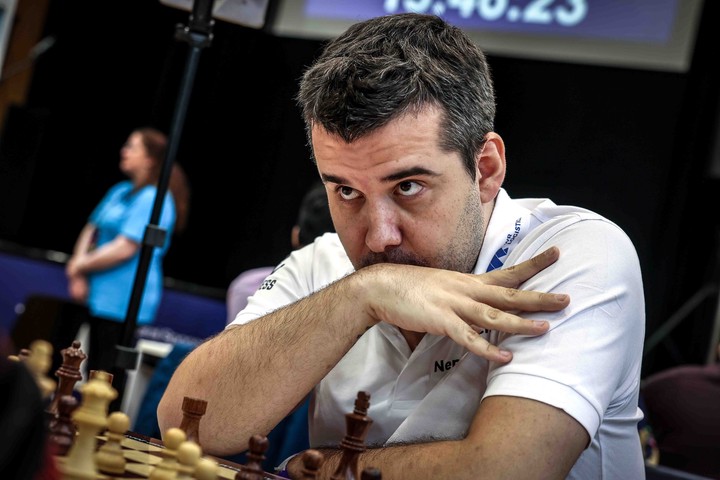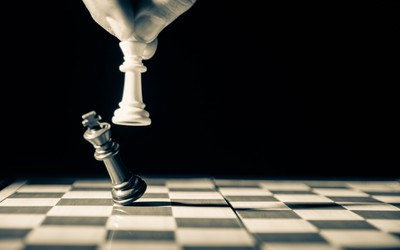
Photo by Madison Oren on Unsplash
The Difference
Why some players get better after playing games and others don'tOne of the most annoying experiences is spending many hours a week playing chess, maybe even many hours a day, and not improving in the least.
You might not be sure why, especially after seeing your friends improve. Indeed, you might see (or be) a lichess or chess.com account with tens of thousands of games, with the rating not improving in the least.
If you want to find out the reasons for this, and how you can improve hundreds of rating points just by changing how you play games, read on!
Reason #1: Your mood and surroundings
What mood you are in, what feeling you have about the game, under what circumstances you play, can all affect your games even before you start playing, and can deeply influence the after effects. Some of the top ones are the following:
Playing Chess Just for Fun/Chilling
There is 100% nothing wrong with playing chess for fun, or just chilling after work or school. However there is a HUGE difference if you are just playing to relax, or if you are actually trying hard, calculating, thinking about plans, etc. Think of it this way-if just for the fun of it, you do a couple of bicep curls with a 1 pound weight, it might be fun, but when you flex in the mirror later, you won't really see any difference! The same way if you barely use the chess "muscle" during games, it won't make a big difference.
Action Step
Try to play games, at least every once in a while, where you evaluate, calculate, make plans, look for tactics, , etc. It's ok to play relaxed games, just don't fool yourself, and try to work. (Although trust me, I know it isn't necessarily always fun!
You Don't Want to Play Chess
Sometimes you don't want to play chess, you are just bored, or tired, or just start playing without even realizing why. When you play that way, your play deteriorates hugely, as GM Grigoryan explains in an article of his.
Action Step
Simple, but hard-just don't play! You will avoid a lot of heartbreak that way-and you won't break your phone from anger!
You Play When You Are Tired
Finally, you don't play when you are in good shape! This is quite simple-when you are very tired, you don't play well at all-the same way you don't do much well, except sleeping.
Action Step
Try to play chess when you are more energetic and fresh. For you this could mean playing chess first thing in the day, or not playing in the evenings, or maybe not playing in the mornings! It changes by each person's situation and personality.
#2: Your Mindset During the Game
These are some of the most important reasons! How you play during the game, what you do during the game, and how you think about your game can all affect your results and improvements. Here are a few top reasons.
You Resign Too Early
This is one of the most common problems players have, which leads to a drop in confidence, hundreds of rating points lost, and a bad mood. Many people as soon as they have a worse or lost position, or blunder a tactic, simply resign immediately!
Action Step
First off, if you blunder, wait for your opponent to exploit it! It is Never too late to resign.
Second, even worse positions can be saved. In fact, saving lost positions is an art in and of itself!
That is why you should always ask the golden question before resigning, namely, "Would I win this position with reversed colors against Magnus Carlsen (or any other top player)?" If the answer is yes, feel free to resign. But if there is a chance, fight on!
You Focus Too Much on Rating
This is one of the funniest situations, and I myself have messed up many games because of it. This causes you not to try to use what you learned, since you haven't practiced it yet and will drop rating if you do it. (Such as new repertoires, or plans you saw in master games)
The solutions to this are very simple, and it can help you score big upsets!
Action Step
First off, stop accepting draws when you are better against higher rated players! In fact, some chess professionals argue you shouldn't even accept draws at all! Second, when you play lower rated players, don't worry about how if you draw you will lose rating, and so you play very aggressively. Just try to calm down and play good moves. No kidding, if you just play good, logical chess, you will have an extremely good shot at them messing up and you winning. Trust me, they are usually lower rated for a reason!
If you are the lower rated player, don't try to play extremely solid if you usually play positionally! Just try to play the way you usually do, and that's when you have a good chance at an upset. Don't let them intimidate you with their rating, or don't draw with them! Imagine you are the young Ernur Amangeldy, 2000 rated at the FIDE World Rapid. You are paired against world top 5 in Rapid and Classical, Ian Nepomniachtchi, and you are black!
Now, do you write it off as a loss? Or do you go with your figurative sleeves rolled up and ready for a fight! Ernur played very aggressive chess, and after dominating the whole game, just barely missed out on a victory. Nonetheless, if he would have played chess contrary to his usual style, he would have lost in no time!
Finally try to detach yourself from your rating! Turn off ratings on lichess display preferences so you can't see them if that helps. When I first did that, I raised around 50 rating points in the first hour!
#3: What You Do After the Game
What you do after the game might be the most important. Some of these might be obvious, but others might surprise you. Here are the top mistakes and action steps to correct these mistakes.
You Play Your Next Game Without A Limit
You immediately play your next game, without respecting a game limit you set beforehand. In one GM written article, the author explains how this is a key to raising hundreds of rating points online.
I completely agree and have seen the effects of this. If you are winning games, it prevents you from getting too optimistic and then messing up, and if you are losing it prevents tilt.
Action Step
Set yourself a limit of games beforehand and keep the limit. Ask a friend or family member to keep you accountable on whether or not you are keeping the rules you set for yourself. You will be surprised of how effective this is!
You Never Look at the Game Again
Unless, of course, you play a brilliant mating sacrifice, and then you want to show it to everyone. For example:
However, even if you won, the game might have been very poor beforehand, and if you lost, it might have been a nice game. Often after a painful loss you feel you never want to see that game again.
Action Step
If you don't want to look at it now, look at the painful loss in a few days. You don't want to lose momentum, so analyze your games after a session. Even quicker games should definitely be analyzed.
You can see the most basic stuff you miss, and the opening mistakes. A simple rule of thumb is to spend half the time on analyzing as you did playing the game-so the longer the game, the longer the analysis should be. Try to find critical positions, moves you missed, and try to improve your calculation during analysis.
Conclusion
If you use what you have learned in this article, I am confident you will go very far! Please, if you liked this or found it helpful, please hit the like, comment below, and follow me so you don't miss later blog posts!
If you want to support me and get better at chess, check out this free GM Masterclass https://chess-teacher.com/affiliates/idevaffiliate.php?id=2487_125
If you want a more personal chess improvement, check out the famous chess website https://chessmood.com/?r=ebkchess 20% off with the above link. Cheers!
*Disclosure: AI was not used in the writing of this article
*Disclosure: Blog contains affiliate links, which I benefit from if you click on and buy something. However, I 100% believe in the websites I advertise.
